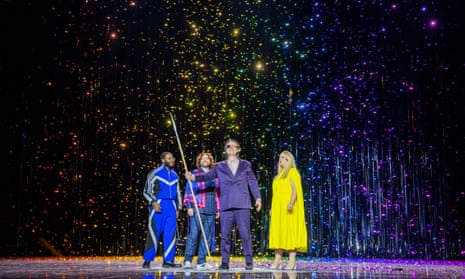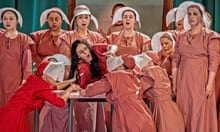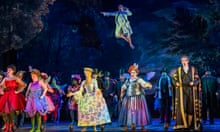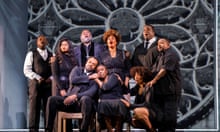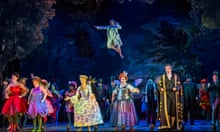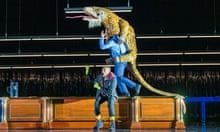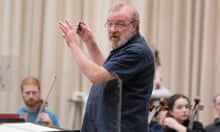There is an awful lot riding on English National Opera’s new production of Wagner’s Rhinegold. Still reeling from funding cuts, the company needs an emphatic theatrical winner to prove its artistic health and direction. Mostly this new Rhinegold – the Ring cycle’s opening opera – delivers that, and then some.
After the same team’s misfiring Valkyrie at the end of 2021, this was far from assured. Even now, the future of this Ring remains in the balance, with the next section, Siegfried, now postponed by ENO and the prestigious co-production with the New York Met appearing stillborn.
The good news is that this Rhinegold deserves to steady the market and to boost ENO’s survival case. Chief credit for that goes to the director, Richard Jones, and the conductor, Martyn Brabbins. But Rhinegold is an ensemble piece, and this production is an ensemble success too, with several young singers getting a breakthrough.
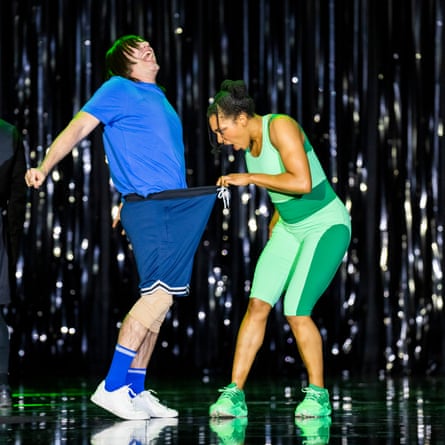
Jones’s characteristically fertile and witty treatment occasionally overreaches. A intelligent Wagnerian idea gratuitously inserted at the start means that the magical musical mystery of Rhinegold’s opening bars misfires. Most of the time, though, Jones and his creative team go back to Wagnerian basics. The Rhine shimmers as it should, the gold glistens, the gods posture, the Nibelungs are crushed and the rainbow bridge dazzles. There is even a golden ring, with which the most recent Bayreuth festival production dispensed, apparently knowing better than Wagner.
The aesthetic, though, is unmistakably Jones & Co. The Rhinemaidens are kitted for the gym, the Nibelungs for a school cross-country run. The unflattering garishness of the gods’s costuming underlines their lack of self-awareness. There is plenty of other directorial insight. The gold, driver of the entire drama, briefly acquires an unsettling life force of its own. Erda slaps Wotan hard in the face to bring him to his senses, while her Norns make him contemplate the sands of time. Freia’s mistreatment is foregrounded effectively. At the end, the gods hunker into a bleak Valhalla, pulling down the shutters against the disorder that is now in motion outside.
Brabbins conducts with a surer touch than he had in Valkyrie. The busy changes of Rhinegold make it feel more his piece, as they do with Jones. As the evening evolves, the ENO orchestra warm audibly to their work, achieving refinement in Erda’s scene and weight in the Valhalla entry that follows.
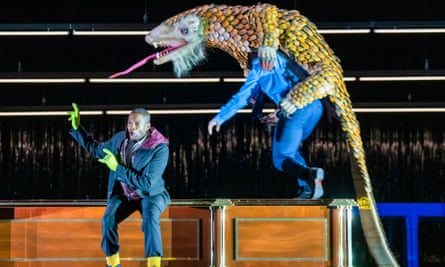
As so often in Rhinegold, the vocal standouts are Loge, charismatically acted and articulated here by Frederick Ballentine, and the sumptuously voiced and pink-pyjamaed Erda of Christine Rice. John Relyea’s cavernously dark-toned Wotan is also very much the singer for the role. Leigh Melrose is a lighter-voiced and frighteningly manic Alberich. Simon Bailey and James Creswell bring vocal clarity to Fasolt and Fafner, as does John Findon as Mime. The whole cast project John Deathridge’s idiomatic translation with such audibility that the surtitles often seem a needless intrusion.
